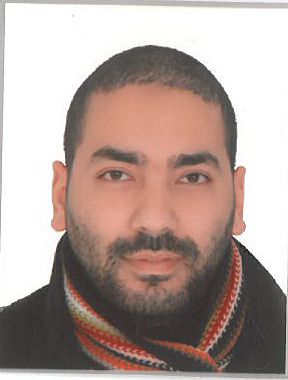Sessions & Tracks
Track 01: Microbial Physiology
The Microbial Physiology group studies the physiology of the anaerobic microorganisms and anaerobic microbial communities that play an important role in environmental biotechnological processes, such as wastewater treatment, soil remediation, production of chemicals and biofuels and recovery of metals. The main research lines are: 1) metabolic interactions between anaerobic bacteria and archaea; 2) microbial conversion of small molecules; 3) respiration with alternative electron acceptors and 4) isolation, characterisation and application of novel anaerobes. In-depth insight into the metabolic pathways is obtained by applying proteome and transcriptome analyses.
Related conferences:
11th World Congress on Virology and Mycology, May 17-18, 2018 Tokyo , Japan; International Conference on Fungal Diseases & Control, December 14-15, 2017 Dubai, UAE;10th International Congress on Clinical Virology, December 4-5, 2017 Dubai, UAE; 2nd International Conference on Applied Microbiology and Beneficial Microbes, October 23-25, 2017, Osaka, Japan; 10th International Virology Congress and Expo, June 04-05, 2018 London, UK; 16th International Pharmaceutical Microbiology and Biotechnology Conference, May 21-23, 2018 Vienna, Austria; 8th Global Summit on Microbiology & Infectious Diseases, February 22-23, 2018 Paris, France; 6th Annual Conference on Microbiology, October 16-18, 2017 Baltimore, USA.
Track 02: Microbiology & Infectious Diseases
Infectious diseases are disorders caused by organisms such as bacteria, viruses, fungi or parasites. Microorganisms that cause illness are all things considered called pathogens. Numerous living beings live in and on our bodies. They're regularly safe or even supportive, yet under specific conditions, a few creatures may bring about illness. Some irresistible illnesses can be passed from individual to individual. Some irresistible sicknesses can be passed from individual to individual. Some are transmitted by nibbles from bugs or creatures. Also, others are obtained by ingesting sullied sustenance or water or being presented to life forms in nature. Signs and side effects fluctuate contingent upon the life form bringing on the contamination, yet regularly incorporate fever and weariness.
Related conferences:
11th World Congress on Virology and Mycology, May 17-18, 2018 Tokyo , Japan; International Conference on Fungal Diseases & Control, December 14-15, 2017 Dubai, UAE;10th International Congress on Clinical Virology, December 4-5, 2017 Dubai, UAE; 2nd International Conference on Applied Microbiology and Beneficial Microbes, October 23-25, 2017, Osaka, Japan; 10th International Virology Congress and Expo, June 04-05, 2018 London, UK; 16th International Pharmaceutical Microbiology and Biotechnology Conference, May 21-23, 2018 Vienna, Austria; 8th Global Summit on Microbiology & Infectious Diseases, February 22-23, 2018 Paris, France; 6th Annual Conference on Microbiology, October 16-18, 2017 Baltimore, USA.
Track 03: Microbial Ecology
Microbial ecology is that the study of microbes inside the setting and their interactions with each other. Microbes are the tiniest creatures on Earth, yet despite their very little size, they have a colossal impact on North Yankee nation and on our surroundings. Microbial ecology can show North Yankee nation our place inside the cosmos -- but life originated and also the approach it evolved, and also the approach we've an inclination to are related to the nice diversity of all various organisms.
Related conferences:
11th World Congress on Virology and Mycology, May 17-18, 2018 Tokyo , Japan; International Conference on Fungal Diseases & Control, December 14-15, 2017 Dubai, UAE;10th International Congress on Clinical Virology, December 4-5, 2017 Dubai, UAE; 2nd International Conference on Applied Microbiology and Beneficial Microbes, October 23-25, 2017, Osaka, Japan; 10th International Virology Congress and Expo, June 04-05, 2018 London, UK; 16th International Pharmaceutical Microbiology and Biotechnology Conference, May 21-23, 2018 Vienna, Austria; 8th Global Summit on Microbiology & Infectious Diseases, February 22-23, 2018 Paris, France; 6th Annual Conference on Microbiology, October 16-18, 2017 Baltimore, USA.
Track 04: Industrial microbiology
Industrial microbiology is a branch of applied microbiology in which microorganisms are used in industrial processes; for example, in the production of high-value products such as drugs, chemicals, fuels and electricity. Industrial Microbiology covers all aspects of the industrial applications of biotechnology, fermentation, environmental microbiology, biodegradation, biodeterioration etc
Related conferences:
11th World Congress on Virology and Mycology, May 17-18, 2018 Tokyo , Japan; International Conference on Fungal Diseases & Control, December 14-15, 2017 Dubai, UAE;10th International Congress on Clinical Virology, December 4-5, 2017 Dubai, UAE; 2nd International Conference on Applied Microbiology and Beneficial Microbes, October 23-25, 2017, Osaka, Japan; 10th International Virology Congress and Expo, June 04-05, 2018 London, UK; 16th International Pharmaceutical Microbiology and Biotechnology Conference, May 21-23, 2018 Vienna, Austria; 8th Global Summit on Microbiology & Infectious Diseases, February 22-23, 2018 Paris, France; 6th Annual Conference on Microbiology, October 16-18, 2017 Baltimore, USA.
Track 05: Medical microbiology
Medical microbiology is a branch of medical science concerned with the prevention, diagnosis and treatment of infectious diseases. In addition, this field of science studies various clinical applications of microbes for the improvement of health. A medical microbiologist studies the characteristics of pathogens, their modes of transmission, mechanisms of infection and growth. Medical microbiologists often serve as consultants for physicians, providing identification of pathogens and suggesting treatment options.
Related conferences:
11th World Congress on Virology and Mycology, May 17-18, 2018 Tokyo , Japan; International Conference on Fungal Diseases & Control, December 14-15, 2017 Dubai, UAE;10th International Congress on Clinical Virology, December 4-5, 2017 Dubai, UAE; 2nd International Conference on Applied Microbiology and Beneficial Microbes, October 23-25, 2017, Osaka, Japan; 10th International Virology Congress and Expo, June 04-05, 2018 London, UK; 16th International Pharmaceutical Microbiology and Biotechnology Conference, May 21-23, 2018 Vienna, Austria; 8th Global Summit on Microbiology & Infectious Diseases, February 22-23, 2018 Paris, France; 6th Annual Conference on Microbiology, October 16-18, 2017 Baltimore, USA.
Track 06: Molecular Microbiology
Molecular microbiology deals with sub-atomic instruments and physiological procedures of microorganisms and their usage underway of biotechnology items and pharmaceuticals, for example, immunizations, antibodies. It additionally includes headway in pathogenicity of microorganisms. Atomic microbiology is a quickly extending territory of contemporary science: the utilization of sub-atomic science has opened up the microbial world in numerous noteworthy ways. The fascination of microorganisms is that they are independent and that they offer complete answers for comprehension the marvel of life.
Related conferences:
11th World Congress on Virology and Mycology, May 17-18, 2018 Tokyo , Japan; International Conference on Fungal Diseases & Control, December 14-15, 2017 Dubai, UAE;10th International Congress on Clinical Virology, December 4-5, 2017 Dubai, UAE; 2nd International Conference on Applied Microbiology and Beneficial Microbes, October 23-25, 2017, Osaka, Japan; 10th International Virology Congress and Expo, June 04-05, 2018 London, UK; 16th International Pharmaceutical Microbiology and Biotechnology Conference, May 21-23, 2018 Vienna, Austria; 8th Global Summit on Microbiology & Infectious Diseases, February 22-23, 2018 Paris, France; 6th Annual Conference on Microbiology, October 16-18, 2017 Baltimore, USA.
Track 07: Microbial Diseases
A microorganism may be a microbe that has the potential to cause sickness. An infection is that the invasion and multiplication of infective microbes in a private or population. Disease is once the infection causes injury to the individual’s important functions or systems. An infection doesn't invariably lead to disease. To cause an infection, microbes should enter our bodies. Microbes will enter the body through the four sites listed below:Respiratory tract (mouth and nose) e.g. respiratory disease virus that causes the contagious disease. Gastrointestinal tract (mouth oral cavity) e.g. eubacteria epidemic cholera that causes cholera. Urogenital tract e.g. Escherichia that causes urinary tract infection. Breaks within the skin surface e.g. eubacteria tetani that causes tetanus.
Related conferences:
11th World Congress on Virology and Mycology, May 17-18, 2018 Tokyo , Japan; International Conference on Fungal Diseases & Control, December 14-15, 2017 Dubai, UAE;10th International Congress on Clinical Virology, December 4-5, 2017 Dubai, UAE; 2nd International Conference on Applied Microbiology and Beneficial Microbes, October 23-25, 2017, Osaka, Japan; 10th International Virology Congress and Expo, June 04-05, 2018 London, UK; 16th International Pharmaceutical Microbiology and Biotechnology Conference, May 21-23, 2018 Vienna, Austria; 8th Global Summit on Microbiology & Infectious Diseases, February 22-23, 2018 Paris, France; 6th Annual Conference on Microbiology, October 16-18, 2017 Baltimore, USA.
Track 08: Microbial metabolism
Microbial metabolism is the means by which a microbe obtains the energy and nutrients (e.g. carbon) it needs to live and reproduce. Microbes use many different types of metabolic strategies and species can often be differentiated from each other based on metabolic characteristics. The specific metabolic properties of a microbe are the major factors in determining that microbe's ecological niche, and often allow for that microbe to be useful in industrial processes or responsible for biogeochemical cycles.
Related conferences:
11th World Congress on Virology and Mycology, May 17-18, 2018 Tokyo , Japan; International Conference on Fungal Diseases & Control, December 14-15, 2017 Dubai, UAE;10th International Congress on Clinical Virology, December 4-5, 2017 Dubai, UAE; 2nd International Conference on Applied Microbiology and Beneficial Microbes, October 23-25, 2017, Osaka, Japan; 10th International Virology Congress and Expo, June 04-05, 2018 London, UK; 16th International Pharmaceutical Microbiology and Biotechnology Conference, May 21-23, 2018 Vienna, Austria; 8th Global Summit on Microbiology & Infectious Diseases, February 22-23, 2018 Paris, France; 6th Annual Conference on Microbiology, October 16-18, 2017 Baltimore, USA.
Track 09: Microbial biotechnology
Microbial biotechnology is defined as any technological application that uses microbiological systems, microbial organisms, or derivatives thereof, to make or modify products or processes for specific use. Current agricultural and industrial practices have led to the generation of large amounts of various low-value or negative cost crude wastes, which are difficult to treat and valorize.
Related conferences:
11th World Congress on Virology and Mycology, May 17-18, 2018 Tokyo , Japan; International Conference on Fungal Diseases & Control, December 14-15, 2017 Dubai, UAE;10th International Congress on Clinical Virology, December 4-5, 2017 Dubai, UAE; 2nd International Conference on Applied Microbiology and Beneficial Microbes, October 23-25, 2017, Osaka, Japan; 10th International Virology Congress and Expo, June 04-05, 2018 London, UK; 16th International Pharmaceutical Microbiology and Biotechnology Conference, May 21-23, 2018 Vienna, Austria; 8th Global Summit on Microbiology & Infectious Diseases, February 22-23, 2018 Paris, France; 6th Annual Conference on Microbiology, October 16-18, 2017 Baltimore, USA.
Track 10: Microbial Immunology
Infectious diseases are primarily caused by pathogenic microorganisms, like pathogenic bacteria, viruses, fungi, parasites or nematodes, most of which are a part of the normal flora of our skin and system and are usually harmless- unless they find an “opening window”, which is when the immune system is weak or compromised, and wreak havoc with the system; hence, these are termed as opportunistic pathogens. Immunology deals with the immune system, and microbes either target or are targeted by our ever efficient immune system. But, then how do infections still occur? It’s a simple logic. Infections occur, when the microbes under cover, neutralize the antibodies produced by our immune system and/ or when our immune system is compromised.
Related conferences:
11th World Congress on Virology and Mycology, May 17-18, 2018 Tokyo , Japan; International Conference on Fungal Diseases & Control, December 14-15, 2017 Dubai, UAE;10th International Congress on Clinical Virology, December 4-5, 2017 Dubai, UAE; 2nd International Conference on Applied Microbiology and Beneficial Microbes, October 23-25, 2017, Osaka, Japan; 10th International Virology Congress and Expo, June 04-05, 2018 London, UK; 16th International Pharmaceutical Microbiology and Biotechnology Conference, May 21-23, 2018 Vienna, Austria; 8th Global Summit on Microbiology & Infectious Diseases, February 22-23, 2018 Paris, France; 6th Annual Conference on Microbiology, October 16-18, 2017 Baltimore, USA.
Track 11: Host-pathogen interaction
The host-pathogen interaction is defined as how microbes or viruses sustain themselves within host organisms on a molecular, cellular, organismal or population level. This term is most commonly used to refer to disease-causing microorganisms although they may not cause illness in all hosts. Because of this, the definition has been expanded to how known pathogens survive within their host, whether they cause disease or not. On the molecular and cellular level, microbes can infect the host and divide rapidly, causing disease by being there and causing a homeostatic imbalance in the body, or by secreting toxins which cause symptoms to appear. Viruses can also infect the host with virulent DNA, which can affect normal cell processes (transcription, translation, etc.), protein folding, or evading the immune response.
Related conferences:
11th World Congress on Virology and Mycology, May 17-18, 2018 Tokyo , Japan; International Conference on Fungal Diseases & Control, December 14-15, 2017 Dubai, UAE;10th International Congress on Clinical Virology, December 4-5, 2017 Dubai, UAE; 2nd International Conference on Applied Microbiology and Beneficial Microbes, October 23-25, 2017, Osaka, Japan; 10th International Virology Congress and Expo, June 04-05, 2018 London, UK; 16th International Pharmaceutical Microbiology and Biotechnology Conference, May 21-23, 2018 Vienna, Austria; 8th Global Summit on Microbiology & Infectious Diseases, February 22-23, 2018 Paris, France; 6th Annual Conference on Microbiology, October 16-18, 2017 Baltimore, USA.
Track 12: Bacteriology
Bacteriology The science and study of bacteria and their relation to medicine and to other areas such as agriculture (e.g., farm animals) and industry. Bacteria are single-celled microorganisms which can live as independent organisms or, dependently, as parasites. Among the better known bacteria are strep, staph, and the agents of tuberculosis and leprosy.
Related conferences:
11th World Congress on Virology and Mycology, May 17-18, 2018 Tokyo , Japan; International Conference on Fungal Diseases & Control, December 14-15, 2017 Dubai, UAE;10th International Congress on Clinical Virology, December 4-5, 2017 Dubai, UAE; 2nd International Conference on Applied Microbiology and Beneficial Microbes, October 23-25, 2017, Osaka, Japan; 10th International Virology Congress and Expo, June 04-05, 2018 London, UK; 16th International Pharmaceutical Microbiology and Biotechnology Conference, May 21-23, 2018 Vienna, Austria; 8th Global Summit on Microbiology & Infectious Diseases, February 22-23, 2018 Paris, France; 6th Annual Conference on Microbiology, October 16-18, 2017 Baltimore, USA.
Track 13: Bacterial Physiology
Bacterial physiology is an exploratory order that worries the life-supporting capacities and procedures of microscopic organisms, which permit bacterial cells to develop and imitate. The biochemical responses that together empower microorganisms to live, develop, and imitate. Entirely, digestion system portrays the aggregate compound responses that occur in a cell, while physiology depicts the part of metabolic responses in the life procedures of a bacterium. The investigation of microorganisms has centrality outside the ability to comprehend of microscopic organisms themselves. Since microscopic organisms are bottomless, effortlessly developed, and moderately basic in cell association, they have been utilized widely as a part of natural examination.
Related conferences:
11th World Congress on Virology and Mycology, May 17-18, 2018 Tokyo , Japan; International Conference on Fungal Diseases & Control, December 14-15, 2017 Dubai, UAE;10th International Congress on Clinical Virology, December 4-5, 2017 Dubai, UAE; 2nd International Conference on Applied Microbiology and Beneficial Microbes, October 23-25, 2017, Osaka, Japan; 10th International Virology Congress and Expo, June 04-05, 2018 London, UK; 16th International Pharmaceutical Microbiology and Biotechnology Conference, May 21-23, 2018 Vienna, Austria; 8th Global Summit on Microbiology & Infectious Diseases, February 22-23, 2018 Paris, France; 6th Annual Conference on Microbiology, October 16-18, 2017 Baltimore, USA.
Market Analysis
Importance and scope
Microbiology is one of the most rapidly emerging field in today’s world. It is an important branch in life science that promotes the healthy living of humans and other living organisms. The microbes affect almost every activity of our life including food, shelter, clothing, health etc. With-in the development in field of microbiology the effects of micro-organisms on human beings has been reduced to a greater extent. The field of microbiology has its influence in many fields thus producing advanced techniques to diagnose and treat infectious diseases, and production of antibiotics, food products and management of waste products in an effective manner. Without microbiology these developments in science field would have been a fantasy.
Market value
The global clinical microbiology market is projected to reach USD 5.77 Billion by 2021 from USD 3.35 Billion in 2016, growing at a CAGR of 11.5% from 2016 to 2021. Market growth can be attributed to factors such as the technological advancements; rising incidence of infectious diseases and growing outbreak of epidemics; growing healthcare expenditure across the world; and increasing funding, research grants, and public-private investments in the field of life science researches.

In 2016, Europe is expected to be the mature markets for clinical microbiology products. However, emerging regions such as Asia-Pacific (including Japan, China, and India) are expected to become the new revenue-generating pockets in the market in the next five years. The Asia-Pacific market is projected to grow at the highest CAGR during the forecast period owing to the growing number of hospitals and clinical diagnostic laboratories in India and China; expanding research capabilities for the development of innovative and affordable clinical microbiology testing procedures across India, China, and Japan; and rising incidences of infectious diseases.

Europe is expected to hold the second-largest share of the global clinical microbiology market in 2016. This prominent market position of the European market is due to factors such as rising acceptance of genome-based diagnostic techniques by healthcare professionals, supportive government policies that ease public accessibility to diagnostic assay procedures (including clinical microbiology), large number of clinical microbiology procedures performed annually across the region, presence of a large number of biotechnology and molecular diagnostic companies, rapid growth in the aging population, and growing incidence of infectious diseases.
Major Industries in this market include
Daly Fluid Technologies (L.L.C)(Dubai,UAE)
Concorde-Corodex Group (Dubai,UAE)
In Vitro Technologies (Australia)
Kurita (Japan)
Major Microbiology Associations Around the Globe:
International Union of Microbiological Societies
Society for general Microbiology
American Society for Microbiology
Canadian Society of Microbiologists
British Infection Association
European Society of Clinical Microbiology and Infectious Diseases
Federation of European Microbiological Societies
Welsh Microbiology Association
Clinical Virology Network
Federation of Infection Societies
Infectious Diseases Society of America
Past conference
Microbial Physiology 2017
The 6th International Conference on Microbial Physiology and Genomics hosted by Conference Series was successfully held during August 31-September 1, 2017 Brussels, Belgium. The conference was marked with the presence of Editorial Board Members of supported Conference Series Journals, Scientists, young and brilliant researchers, business delegates and talented student communities representing more than 25 countries, who made this conference successful and productive.
This conference highlighted the theme “Revealing the Innovations in Microbial Physiology and Genomics” with the following scientific tracks:
Microbial Physiology
Metabolism Diversity in Microbes
Microbes and Environments
Microbial Metabolism
Advanced Microbial Genetics
Microbial Evolution, Phylogeny and Diversity
Industrial Microbiology
Microbial Ecology
Microbial Diseases
Host-Microbe Interactions
Bacterial Physiology
Molecular Microbiology
Microbial Genomics and Genome Sequencing
Microbiology & Infectious Diseases
The conference proceedings were carried out through various Scientific Sessions and plenary lectures, of which the following were highlighted as Keynote presentations:
Dr.Julie Bouckaert, Université de Lille, France
Dr.Elizabeth M Nolan, Massachusetts Institute of Technology, USA
Dr.Patrick Fickers, University of Liège, Belgium
Dr.Shin-ichi Kayano, Kio University, Japan
Conference Series has taken the privilege of felicitating Microbial Physiology -2017 Organizing Committee, Editorial Board Members and Keynote Speakers who supported for the success of this event.
The esteemed guests, Keynote speakers, well-known researchers and delegates shared their innovative research and vast experience through their fabulous presentations at the podium of grand Microbial Physiology -2017 Conference. We are glad to inform that all accepted abstracts for the conference have been published in Conference Series “Journal of Microbial & Biochemical Technology” as a special issue.
Our special thanks to the editors of Journal of Microbial & Biochemical Technology Applied Microbiology: Open Access, Clinical Microbiology: Open Access and the organizing committee members, Chair and Co-Chairs for their immense support and beneficial approach.
The conference proceedings were carried out through various Scientific-sessions and plenary lectures.
We are also obliged to various delegate experts, company representatives and other eminent personalities who supported the conference by facilitating active discussion forums. We sincerely thank the Organizing Committee Members for their gracious presence, support and assistance. With the unique feedback from the conference, Conference Series would like to announce the commencement of the “Microbial Physiology 2018” to be held during July 16-18, 2018 London, UK.











